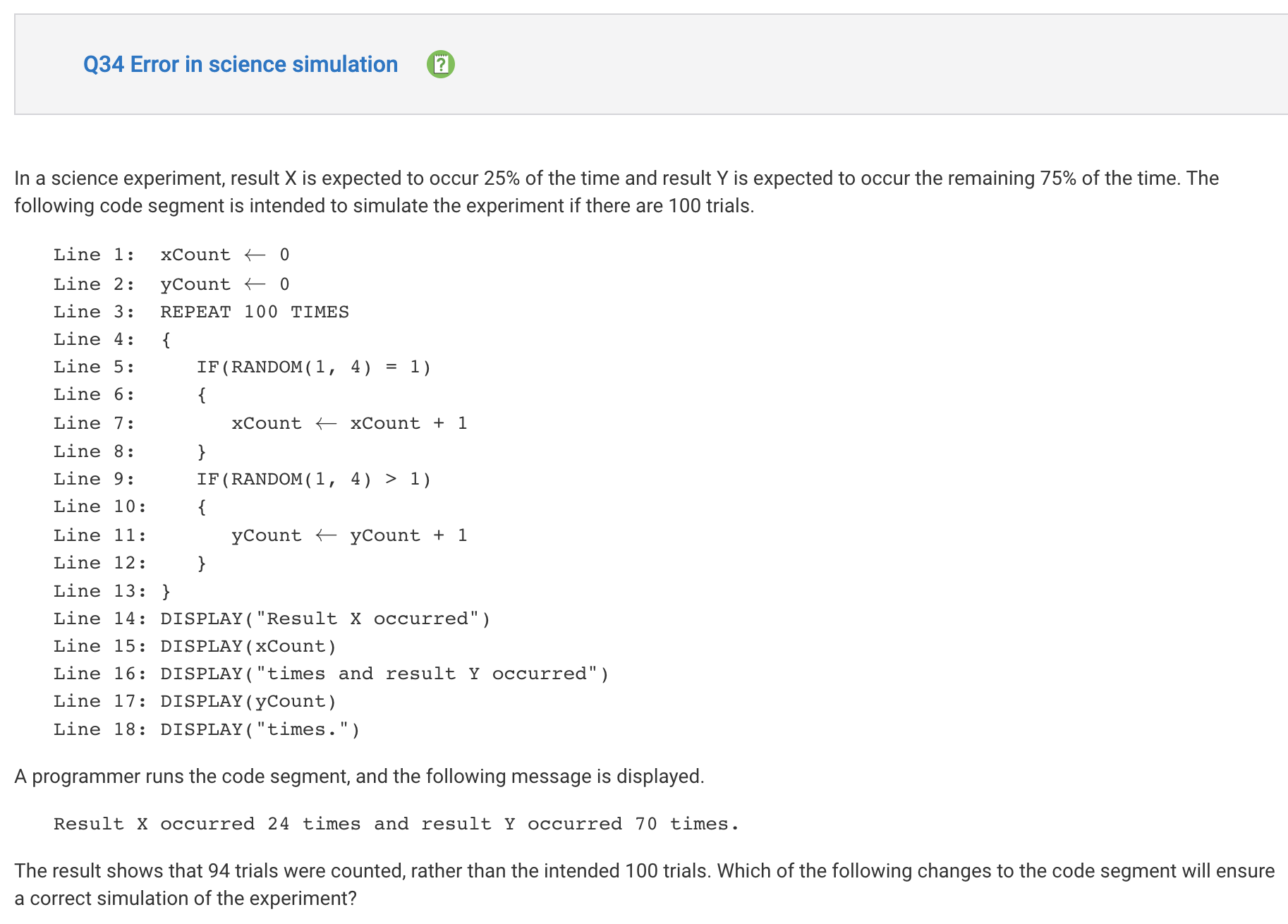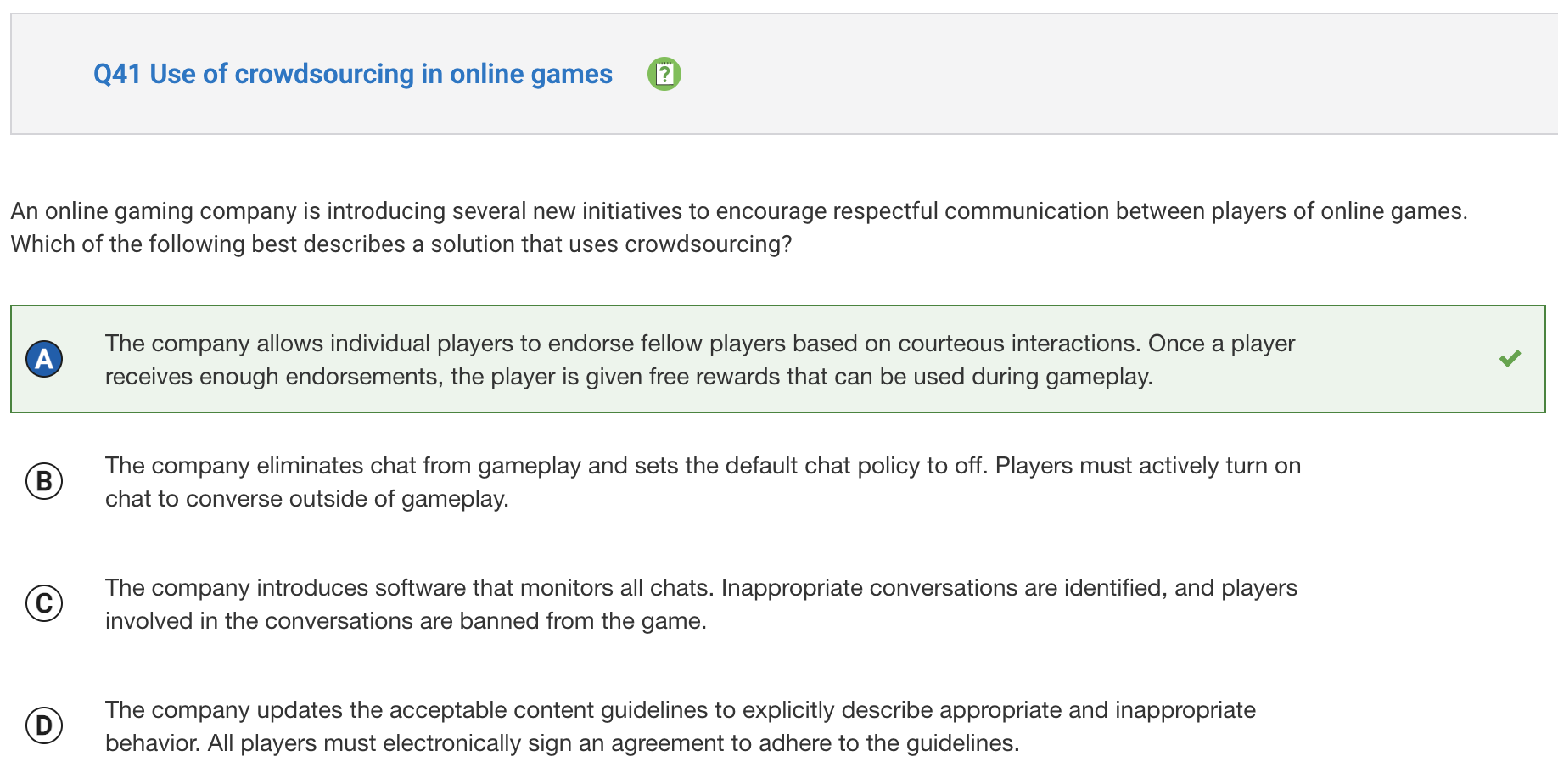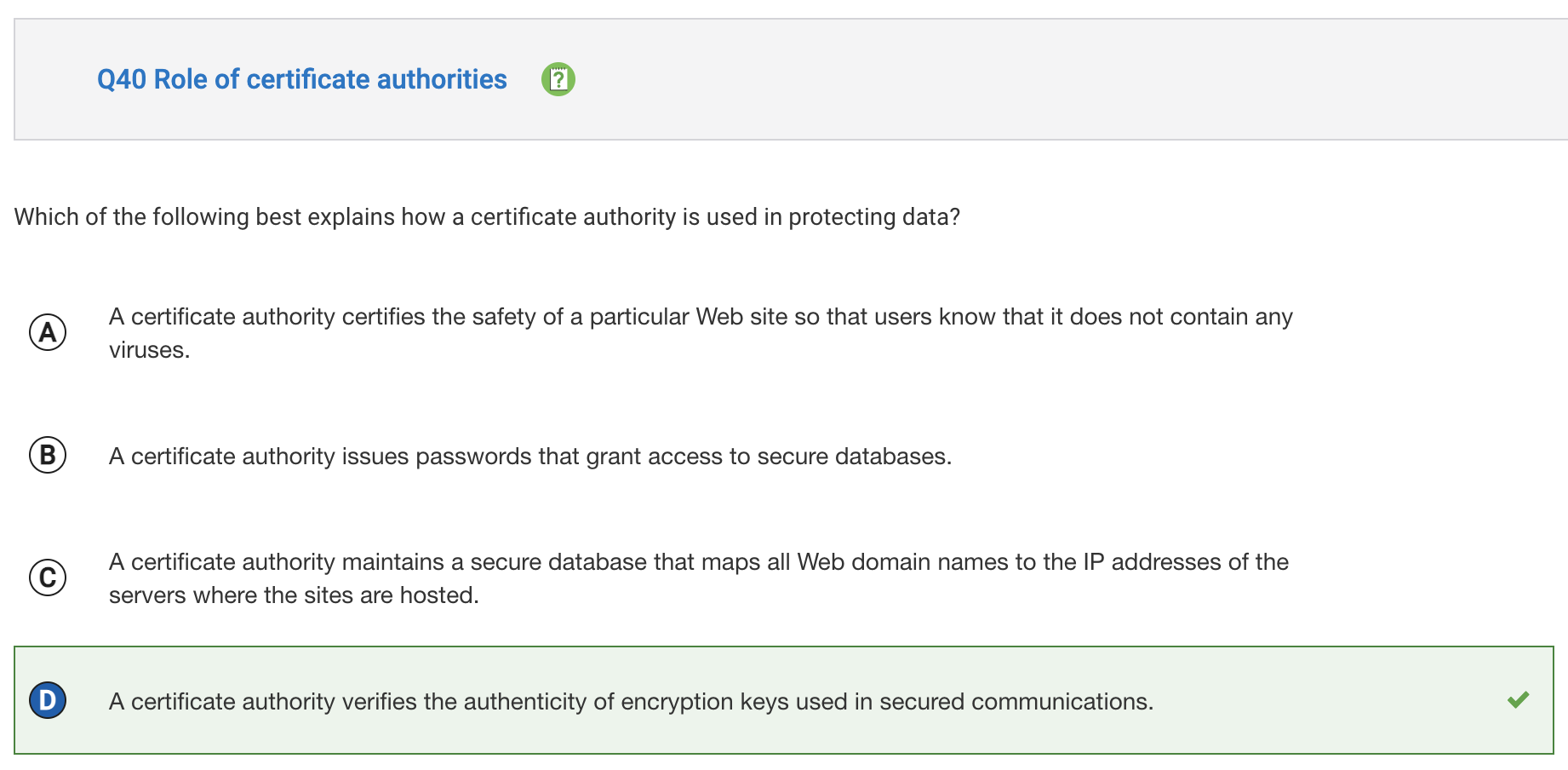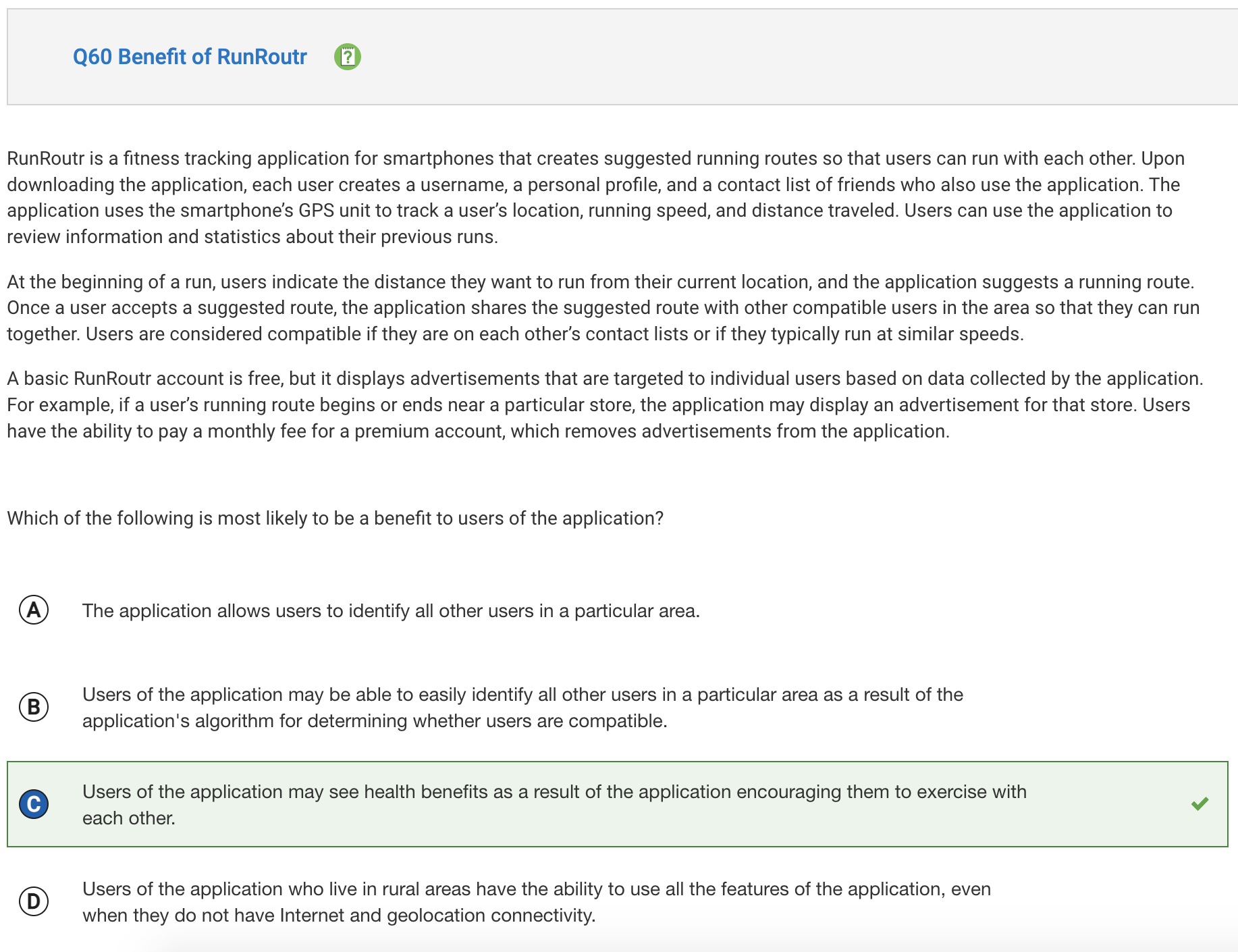2021 Practice Exam MCQ Reflection
A reflection on the 2021 practice MCQ test.
Results

I got 70/70. Wow. This time, I was fairly confident in all of my answers. I’m still very surprised I didn’t make any little mistakes.
Timing
I finished all of the questions within less than an hour and a half. I did it in two chunks, the first one lasting about 15 minutes and getting through 21 questions and the rest of the quiz in about an hour and 10 minutes.
I found that questions with diagrams or intricate program descriptions, like the dataset work and robot square problems, took me the longest, but basic questions about computer science concepts were pretty much instant.
Problems I Struggled With
I was pretty confident throughout this quiz, so I just decided to put the questions that made me think.
Question 34

If I had gone into this test without having done a bunch of coding already, I wouldn’t have seen any problem with the code. It took me a while to notice that there were two different “RANDOM(1, 4)” functions that were being compared rather than one that is assigned to a variable for use in this conditional. Overall, the fact that the function runs twice changing the odds makes this a fairly advanced problem (relative to other problems in this MCQ) and made me think a bit.
Question 41

I fully understood that the question was asking which was the best solution that uses crowdsourcing, but the wording made me think that the quiz was implying that all of the examples used it, which didn’t seem to be the case. Ultimately, I doubted that assumption and picked the only option that uses crowdsourcing, but I still didn’t like the answer because this isn’t really a good solution in context. Players could abuse that feature to reward their friends for no reason.
Question 44

This was a process of elimination question for me at first because I didn’t remember what a round-off error was, but eventually I was able to make a more educated answer because I remember dealing with errors that result from incorrect number rounding in programs. I knew for a fact this didn’t have to do with overflow errors.
I was stuck between B and D, but ultimately decided on B because I was fairly sure that code really never stores numbers using an unlimited number of bits, and because the lack of any limit would probably mean greater precision for the numbers.
Question 60

I really didn’t struggle with this question too much, but something about option B made me think it could possibly be the answer. Obviously, the program provides opportunities for health benefits, but I had skimmed that option at first and thought it implied that using the app has a direct effect on your health, which closer reading would show me wasn’t what it said.
The second option talks about finding other users nearby, which is something the program can do. However, I had misread at first that it said “all” users in the option, which was obviously not the case as a result of the matchmaking the app does. It also seemed weird for the benefit of the app to be that people can find other people that use the app, but I guess it was only talking about part of the benefit. Either way, I chose the right answer.
Overall Reflection
Here are some things that the test let me know I should study further, which I am currently doing before the AP exam:
- Differences between symmetric and public key encryption/decryption
- Converting binary to decimal, just a quick review since they did that a lot on this quiz
- Big code block and paragraph questions
- Review them to understand them quicker
- Big Idea 4, just one more time
- Emphasis on bandwidth, the structure of the internet (each layer), routing and packets